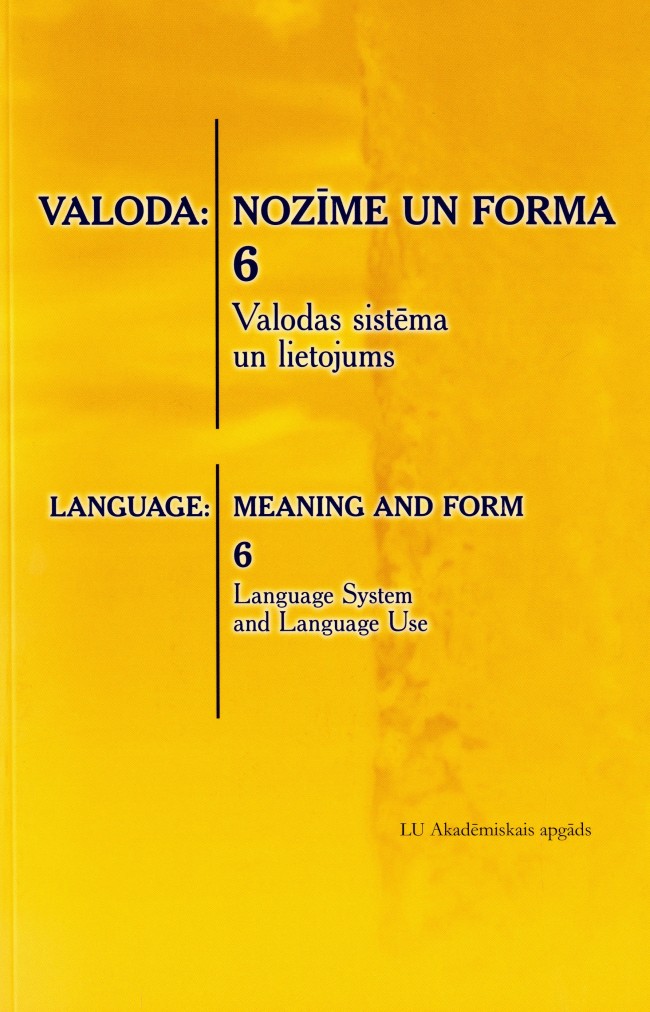Reliability types and typical devices of their expression in advertisement texts
Reliability types and typical devices of their expression in advertisement texts
Author(s): Vaidotas ValskysSubject(s): Language studies, Language and Literature Studies, Theoretical Linguistics, Applied Linguistics, Communication studies, Marketing / Advertising
Published by: Latvijas Universitātes Akadēmiskais apgāds
Keywords: advertisement texts; modality; categorical and problematic reliability
Summary/Abstract: A speaker’s relationship with the idea spoken about is expressed by modality, which is treated as a grammatical and semantic category and performs the communicative pragmatic function: it shows the speaker’s attitude towards the expression; it stimulates the addressee to react; it signalises what reaction the addresser expects from the addressee, etc. Therefore, modality is also very important in advertisement texts. Secondary modality distinguishes the speaker’s attitude towards the reliability of the content of the expression. Numerous works in Lithuanian linguistics tend to distinguish categorical and problematic reliability.The present article is a discussion on lexical cases of problematic and categorical reliability expression taken from different advertisement texts.Their analysis reflects that words of categorical reliability are used more often. It is most probably related to general advertisement intentions, as the language used for advertising has the main task to persuade, disclose the benefit received from the item used, warrant that it is of good quality, etc. Cases of problematic reliability expression are not frequent in advertisement texts. This might be due to them not having such a clear meaning of certainty as in the case of words expressing categorical reliability.The most frequent items expressing categorical reliability are the particles net ‘even’ and ne ‘not’ as well as the adverb tikrai ‘really’. The negating particle ne ‘not’ is quite frequently used by employing the principle of contrast and thus making the positive sides of the advertised item or service even more prominent.Problematic reliability is most often expressed in advertisement texts by the particles ar ‘is it’, lyg ‘as if’, tarsi ‘as if’. The interrogative particle ar is aimed at catching a user’s attention; meanwhile, the particles lyg and tarsi are used in figurative comparisons (similes) aiming at getting the addressee’s attention, pointing out exceptional quality of an item, etc.The research results indicate that advertisement makers are able to skilfully use words expressing reliability in order to make advertisements interesting and attractive. It is especially prominent in advertisements of Whiskas and Carlsberg whose texts (especially slogans) have become an inseparable part of their brand names. Creation of a paradoxical situation and unexpected usage of a word marking reliability helps to get more of the addressee’s attention and memorise the advertisement as well as items promoted in advertisements of these brands.
Journal: Valoda: nozīme un forma
- Issue Year: 2015
- Issue No: 6
- Page Range: 198-211
- Page Count: 14
- Language: English

